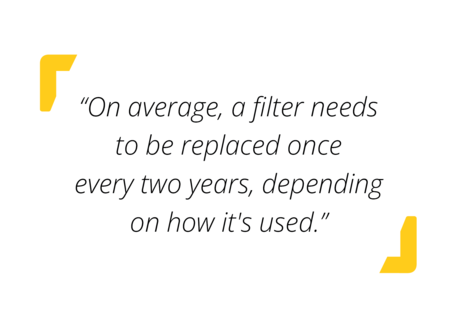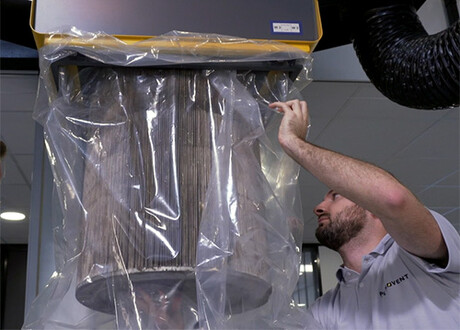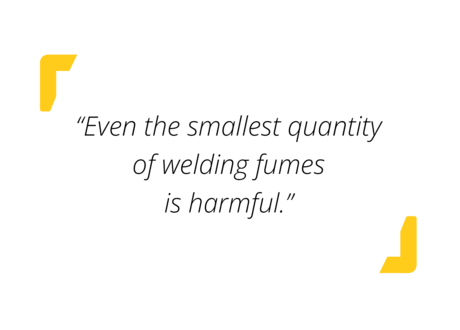Exclusive distributorship with Fantech Pty. Ltd.
Plymovent announces exclusive distributorship with Fantech Pty. Ltd. for Australia and New Zealand.

According to the International Agency for Research on Cancer (IARC), welding fumes are confirmed as being carcinogenic. To prevent your personnel from exposure to risks to their health, it's important to install an air purification system that delivers high quality. That quality depends on the filter, or the 'lungs' of the system. What risks do you run if you use an incorrect (replacement) filter? Michel Ligthart, Product and International Sales Manager at Plymovent, answers some of the most common questions.
Michel Ligthart: 'When owners of Plymovent equipment start looking for replacement filters, they usually have difficulty knowing exactly what it is that they need. When you find a cheaper filter that seems to fit your system, you'll probably think it a no-brainer. But, experience shows that the performance of different filters varies quite widely. In practice, we often find that this is something people aren't always aware of and that they are incorrectly or inadequately informed about how to use and replace filters. When it comes to protecting your greatest asset – your employees – you really don't want to be taking any risks.'

'To look at them, filters all look the same. Someone considering purchasing a filter cannot, from the outside, determine whether the filter cloth (media) of two different brands of filter has the same quality, even if the two filters fit in the same system. If you're lucky, a cheaper filter will work as it should to begin with. If you're not so lucky, that filter will stop working or underperform in just a few months. You'll often find that the capacity of the filter in your welding fume extraction system declines much sooner than you notice.
On average, a filter needs to be replaced once every two years, depending on how it's used. Whenever you opt for a filter with a low purchase price, you're taking a structural risk with the performance of your extraction system. And that is the system that needs to safeguard the quality of the air in the workplace, on which your colleagues are dependent. Their health rests on your decision-making.'

'Filters may very well look the same, but can differ substantially in their quality. The quality of the filter cloth is determinative. For a filter to work well in the long-term, you need to clean it intensively at regular intervals. In our systems, we use compressed-air to do this. The filter cloth must be able to withstand a shock of compressed-air without sustaining damage. Even if only the structure of an alternative filter is weaker than an original filter, the fibres will become damaged with each clean. This will cause the filter capacity to decline.
In addition, the quality is also affected by how well the filter fits into the welding fume extraction system, which is very precise. After all, we need to filter ultra-fine particulate, and it doesn't take much for the particulate to find its way around the filter. We test our devices thoroughly using our proprietary filters which fit perfectly into our systems. That's why we can give our products such extensive safety guarantees.'
'Alternative filter cartridges are made by filter producers and distributed by a wide range of different suppliers. These producers are known as "integrators", which assemble existing components, which may not necessarily have been designed for this purpose, into filter cartridges. But these producers have very little insight into how those filters will perform in application X, Y, Z. As a buyer, you run a risk with these cheaper filters as they impact the performance of the welding fume extraction system and thus the health of all concerned.'
'Plymovent has been offering the complete package of filter cartridges, filter devices, overall systems with control and technology for almost fifty years. We know our products and how they are used. We also subject our devices to testing in all manner of situations. This means that we can distinguish ourselves from producers who only offer one part of the solution. This is a world based on knowledge through experience. The average producer of filter cartridges doesn't know anything about the performance of its filters. The only way to know this is if you develop the filters and the associated devices together and test them extensively. We have the advantage of being able to see the performance of our devices every single day. With this knowedge, we can learn and then use that as a basis for our product development. This makes us unique. That is our story. We do not want to run risks with the core objective of our devices, namely the health of our end users. That is a certainty that you can expect from Plymovent and our products.'

'Offering a safe air quality is not always seen as a valuable investment, partly because producers of welding fume extraction systems do not always explain this important goal to businesses well enough. That leads some businesses to opt for an additional welding robot, thinking that this is more efficient. But Plymovent knows the market and knows that one of the main challenges for the coming years will be finding and retaining skilled personnel So, as a business, it's extremely important to be able to offer comfortable, healthy working conditions – it's not something that can be skimped on, or risks taken with.
The hardest part is perhaps that it isn't easy to demonstrate that working in unhealthy conditions can wipe years of your life. Nevertheless, the link between exposure to welding fumes and cancer is undisputed. According to the International Agency for Research on Cancer (IARC), there is no demonstrably safe threshold value, so even the smallest quantity of welding fumes can be harmful. We are beginning to see a turning point, with the new generation of welders showing more awareness of their health. They are much more accepting of the need for clean air in the workplace. When attempting to attract new employees, the guarantee of clean air in the workplace is ever more important.'
'Plymovent uses materials in our filters that cost more due to their specific properties. This means that we can offer extensive safety guarantees. With larger systems, the costs of replacing filters can quickly become substantial. But that cost is nothing when you consider the importance of keeping your people satisfied and motivated. If you install a cheap filter, you're running a major risk for minimal savings. Is it worth it? I don't think that it is.'

'One of the pillars of your strategy for continuity is investing in good working conditions. This is just as important as having effective production methods. People responsible for making purchases for air quality must have the right knowledge or be able to get it from their supplier. You need to consciously decide what devices to purchase for healthy air, and do so armed with all relevant information.
Thanks to publications by the IARC in Europe, welding fumes are getting a lot of attention. There's even talk of new European legislation for Europe to make welding fumes equal to asbestos...'
We're happy to help!